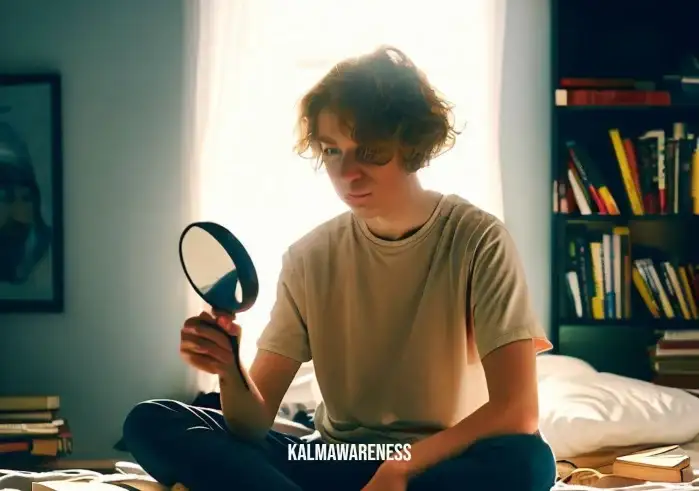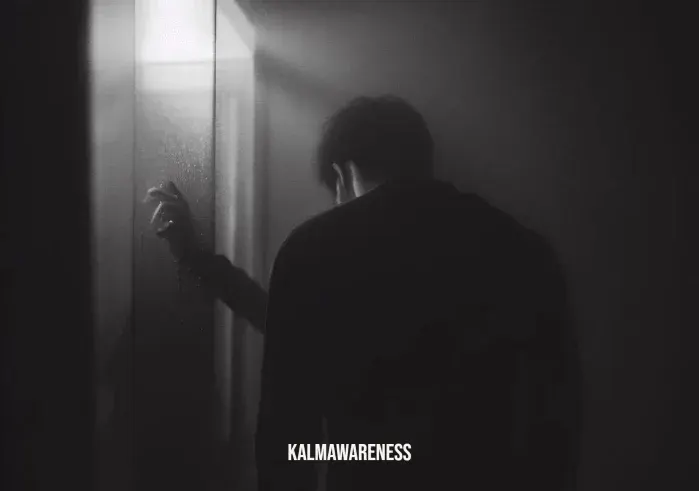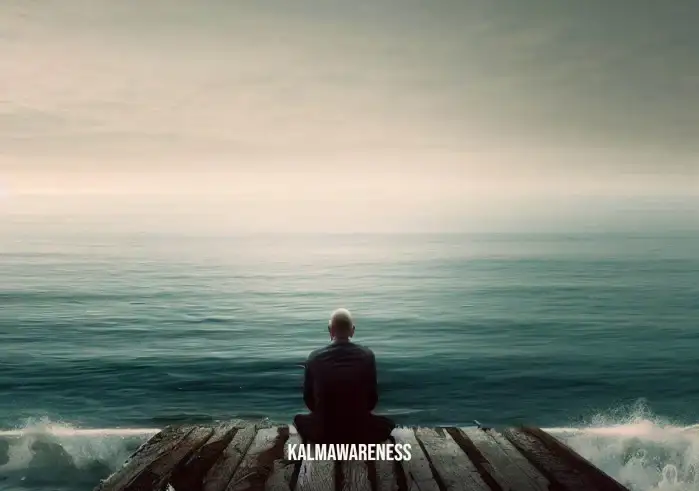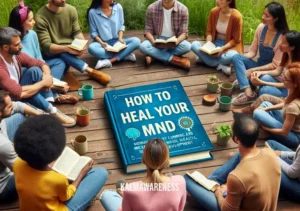Why Can’t I Look at Myself in the Mirror? Exploring the Psychology of Self-Perception and Body Image
Looking at oneself in the mirror is more than a simple act; it’s an experience deeply tied to our self-perception and body image. Have you ever asked yourself the question, “why can’t I look at myself in the mirror?” If so, you’re not alone. Many people struggle with this reality, often due to a mix of psychological and societal factors.
What Happens When You Look in the Mirror?
When you look at yourself in the mirror, you are, essentially, observing your own reflection. This might seem like a mundane, daily ritual, but it can be a profound psychological experience for many. People often interpret their reflection differently, leading to a complex phenomenon known as mirror image perceptions.
As we explore this topic, it’s crucial to understand that your self-perception plays a significant role. The way you see yourself may not align with how others see you, which can lead to discrepancies between your internal and external perceptions.
The Influence of Body Image and Self-Esteem
Body image, defined as the mental representation you create of your physical self, is an important factor in how you perceive yourself in the mirror. If you have a positive body image, you’re likely to feel comfortable looking at your reflection. However, if your body image is negative, the mirror can become a source of distress.
This discomfort can be further exacerbated by low self-esteem. People with low self-esteem often struggle with self-criticism, leading to a distorted perception of their bodies. This distortion can make the experience of looking in the mirror stressful and even frightening. This is well documented in our piece on the relationship between self-esteem and mirrors.
The Role of Identity and Self-Recognition
Another aspect to consider is the recognition of oneself in the mirror. Some people might feel that they don’t recognize themselves when they look in the mirror. This can be a perplexing experience, and it’s often associated with feelings of disconnection from one’s identity.
This disconnection can be due to various factors, such as significant life changes, trauma, or mental health issues. In some cases, it might be due to a phenomenon known as depersonalization, where individuals feel detached from their thoughts, feelings, and physical presence.
Remember, you are your biggest critic. These feelings of disconnection and self-criticism often stem from our internal dialogue. It’s essential to approach ourselves with kindness and understanding, even when we don’t feel at our best.
As we conclude this first part of our exploration into why some people struggle to look at themselves in the mirror, it’s clear that this issue is deeply rooted in self-perception, body image, self-esteem, and identity. In the next part of the article, we will delve deeper into the psychological mechanisms behind this phenomenon and provide insights from experts in the field of self-perception and body image.
We invite you to continue reading the next part of this article, where we will uncover more about this intriguing aspect of human psychology. From the exploration of societal pressures to the importance of mirror activities in therapy, there’s much more to discover about why looking in the mirror can be such a challenging experience for some of us.
“I urge you to please notice when you are happy, and exclaim or murmur or think at some point, ‘If this isn’t nice, I don’t know what is.'” – Kurt Vonnegut

Understanding the Reasons Behind “Why Can’t I Look at Myself in the Mirror?” – External Influences and Coping Mechanisms
Societal Pressures and External Influences
In addition to the internal factors discussed previously, external influences also play a significant role in shaping our self-perception. Our society often places high importance on physical appearance, bombarding us with messages about what’s considered attractive or desirable.
Living in such a society can lead to a phenomenon called social comparison, where individuals compare their physical appearance to that of others. Research has shown that girls in front of mirrors often experience more anxiety due to societal pressures and unrealistic beauty standards.
The Role of Media and Representation
Media representation significantly impacts our self-perception and the way we see ourselves in the mirror. With an onslaught of idealized images of both men and women, we often end up comparing our reflection with these unrealistic standards. For example, an average guy looking in the mirror might not see himself the same way he sees his favorite movie actor.
Techniques to Improve Self-Perception and Body Image
If you often find yourself asking, “why can’t I look at myself in the mirror?”, consider using these techniques to improve your self-perception and body image:
- Practice mindfulness: Mindfulness involves focusing on the present moment without judgment. This approach can help you stay centered and less likely to get caught up in negative thoughts about your appearance. For more details, refer to our post on Brené Brown’s take on meditation.
- Use positive affirmations: Positive affirmations can help you challenge and overcome self-sabotaging and negative thoughts. When you find yourself spiraling into self-criticism, gently remind yourself of your worth and beauty.
- Self-compassion: Treat yourself with the same kindness and understanding as you would treat a close friend. When you experience moments of self-doubt or criticism, respond with self-kindness.
- Seek professional help: If your negative self-perception is causing significant distress, it might be helpful to seek professional help, such as a therapist or counselor.
The Mirror Activity – A Therapeutic Tool
Therapists often use a powerful tool called the mirror activity to help individuals with poor self-perception and body image. This activity involves looking at oneself in the mirror and challenging the negative thoughts and feelings that arise. Over time, this can help transform the way one perceives themselves in the mirror.
To summarize the findings, here is a quick table presenting the different factors affecting our ability to look at ourselves in the mirror and the suggested coping mechanisms:
| Factor | Impact | Coping Mechanism |
|---|---|---|
| Societal Pressure | Increases self-comparison and body dissatisfaction | Cultivate a critical view of societal standards |
| Media Representation | Encourages unrealistic beauty standards | Consume diverse and body-positive media |
| Negative Self-perception | Leads to low self-esteem and distress | Practice mindfulness and positive affirmations |
| Lack of Self-compassion | Exacerbates feelings of unworthiness | Cultivate self-compassion |
As we conclude this chapter, it’s important to remember that everyone has unique experiences when looking at their reflections. Even if you sometimes find yourself asking, “why can’t I look at myself in the mirror?” know that you’re not alone, and there are effective strategies and resources to help you navigate this journey.
In the next part of this article, we’ll explore how our emotional state, especially experiences of grief and loneliness, might impact our ability to face our reflections. We’ll also delve into the fascinating phenomenon of mirror gazing and its therapeutic potential. We invite you to continue reading to further unravel the complexities of our self-perception and its link to our mirror image.

Unraveling the Emotional Impact: “Why Can’t I Look at Myself in the Mirror?”
The Emotion-Mirror Link
A lesser-known factor that affects our ability to look at ourselves in the mirror is our emotional state. It’s not uncommon for negative emotions, such as grief, loneliness, or anxiety, to distort the image we see in the mirror. It can even lead to the distressing feeling of not recognizing one’s own reflection. An article titled “When I Look in the Mirror, I Don’t Recognize Myself” provides a deeper insight into this experience.
The Mirror of Grief
The loss of a loved one can profoundly affect our self-perception. Grief often comes with a sense of disconnection from oneself and the world, which can make one’s reflection in the mirror seem foreign. To borrow words from an unknown author, “Grief, I’ve learned, is really just love.” It’s love with no place to go. This profound emotion can cloud our self-perception, leading to the question, “why can’t I look at myself in the mirror?”
Loneliness and the Mirror Image
Feelings of loneliness can similarly distort our mirror image. When we feel isolated, we might see a reflection that echoes our internal feelings of desolation. Our post on “Images of Solitude” explores this theme further. It’s crucial to remember that loneliness is a temporary state, and reaching out to others for support can significantly help.
Anxiety and Self-Perception
Anxiety can also skew our self-perception. If you’ve been feeling anxious, you might notice that you’re asking more self-directed questions like “Anxiety, Questions to Ask Yourself”. Remember, it’s okay to seek help when feeling overwhelmed by such thoughts.
Coping Mechanisms
Regardless of the emotional state causing the disconnect with your mirror image, there are ways to cope and improve your relationship with your reflection:
- Seek emotional support: Sharing your feelings with trusted friends, family, or a mental health professional can be incredibly beneficial.
- Express your feelings: Writing in a journal, creating art, or even talking to your reflection can help process your emotions.
- Mindfulness practices: Mindfulness can anchor you in the present and help navigate negative emotions. You can refer to the article on Bruce Lee’s approach to meditation for inspiration.
In the words of renowned poet and civil rights activist Maya Angelou, “I don’t trust anyone who doesn’t laugh.” Laughter and joy can be powerful tools in transforming our self-perception.
As we come to the end of this section, remember that it’s perfectly normal to have complex emotions when looking in the mirror. Experiences of grief, loneliness, and anxiety can distort our mirror image, making us ask, “why can’t I look at myself in the mirror?”
In the next part of this article, we will delve into the realm of mirror gazing and explore its potential therapeutic uses. We’ll also discuss the fascinating phenomenon of mirror-induced self-discrepancies and how it connects to our overall self-perception. So, stay tuned to explore the many layers of our reflection in the mirror.

Unraveling the Emotional Impact: “Why Can’t I Look at Myself in the Mirror?”
The Emotion-Mirror Link
A lesser-known factor that affects our ability to look at ourselves in the mirror is our emotional state. It’s not uncommon for negative emotions, such as grief, loneliness, or anxiety, to distort the image we see in the mirror. It can even lead to the distressing feeling of not recognizing one’s own reflection. An article titled “When I Look in the Mirror, I Don’t Recognize Myself” provides a deeper insight into this experience.
The Mirror of Grief
The loss of a loved one can profoundly affect our self-perception. Grief often comes with a sense of disconnection from oneself and the world, which can make one’s reflection in the mirror seem foreign. To borrow words from an unknown author, “Grief, I’ve learned, is really just love.” It’s love with no place to go. This profound emotion can cloud our self-perception, leading to the question, “why can’t I look at myself in the mirror?”
Loneliness and the Mirror Image
Feelings of loneliness can similarly distort our mirror image. When we feel isolated, we might see a reflection that echoes our internal feelings of desolation. Our post on “Images of Solitude” explores this theme further. It’s crucial to remember that loneliness is a temporary state, and reaching out to others for support can significantly help.
Anxiety and Self-Perception
Anxiety can also skew our self-perception. If you’ve been feeling anxious, you might notice that you’re asking more self-directed questions like “Anxiety, Questions to Ask Yourself”. Remember, it’s okay to seek help when feeling overwhelmed by such thoughts.
Coping Mechanisms
Regardless of the emotional state causing the disconnect with your mirror image, there are ways to cope and improve your relationship with your reflection:
- Seek emotional support: Sharing your feelings with trusted friends, family, or a mental health professional can be incredibly beneficial.
- Express your feelings: Writing in a journal, creating art, or even talking to your reflection can help process your emotions.
- Mindfulness practices: Mindfulness can anchor you in the present and help navigate negative emotions. You can refer to the article on Bruce Lee’s approach to meditation for inspiration.
In the words of renowned poet and civil rights activist Maya Angelou, “I don’t trust anyone who doesn’t laugh.” Laughter and joy can be powerful tools in transforming our self-perception.
As we come to the end of this section, remember that it’s perfectly normal to have complex emotions when looking in the mirror. Experiences of grief, loneliness, and anxiety can distort our mirror image, making us ask, “why can’t I look at myself in the mirror?”
In the next part of this article, we will delve into the realm of mirror gazing and explore its potential therapeutic uses. We’ll also discuss the fascinating phenomenon of mirror-induced self-discrepancies and how it connects to our overall self-perception. So, stay tuned to explore the many layers of our reflection in the mirror.

Mirror Reflections: A Cultural Perspective
The Magic of Mirrors in Societal Contexts
In the world of symbols and meanings, mirrors have been perceived differently across various cultures. Some see them as tools of self-reflection, while others as portals to parallel universes. When questioning “why can’t I look at myself in the mirror?”, we also need to consider our cultural and societal backgrounds.
The Japanese folklore, for instance, believes that mirrors represent truth because they reflect only what is presented to them. Similar sentiments are echoed in an article titled “Person Mirror Reflection”. Mirrors can serve as impartial observers, reflecting reality as it is, without any adornments or masks.
The Societal Mirror: Reflection of Expectations
In a more metaphorical sense, society itself often serves as a mirror, reflecting its norms, values, and expectations back to us. The question of not being able to look at oneself in the mirror could stem from societal pressures, judgment, and stereotyping.
The article “Being Something You’re Not” extensively explores how societal expectations can distort our self-perception. We often tend to view ourselves through the lens of societal ideals, which can exacerbate feelings of self-criticism and judgment, creating a barrier to truly seeing ourselves.
The Mirror and Body Image Concerns
Body image concerns are another substantial reason why many people struggle with mirror reflections. Societal standards of beauty can lead to critical self-examination in front of the mirror, often causing distress and self-loathing.
In this context, the article “Meditation for Eating Disorders” discusses how mindfulness and meditation can help in healing body image issues. By practicing mindfulness, we can gradually learn to observe our reflections non-judgmentally and with self-compassion.
Shattering the Mirror: Embracing Authenticity
Breaking free from societal and self-imposed expectations can feel like shattering a mirror. It’s a process of liberation, of choosing authenticity over conformity. It involves looking at ourselves not through the distorted mirrors of societal expectations but through the clear lens of self-love and acceptance.
The article “Not Feeling Yourself” delves into the concept of authenticity and offers some insightful pointers on embracing our true selves.
As we conclude this part of our exploration, we invite you to join us in the next chapter where we will delve into the psychology behind the fear of mirrors, also known as Eisoptrophobia, and discuss various strategies and coping mechanisms. We continue to delve deeper into our central theme of “why can’t I look at myself in the mirror?” and hope to unravel even more facets of this complex question. Join us as we continue to explore the depths of self-perception, mirror reflections, and our intricate relationship with the self.

Reconciling with Reflection: The Path to Self-Acceptance
When Mirrors Become Walls
For many, mirrors can feel like impenetrable walls, casting intimidating reflections that distort their self-perception. The inability to look at oneself in the mirror is not uncommon. It often stems from deep-seated insecurities and anxieties, primarily about one’s appearance and worthiness. An article titled “When I look in the mirror, I don’t recognize myself” further discusses this feeling of estrangement and disconnection from our reflected selves.
The Healing Power of Meditation
One of the ways to combat such debilitating self-perception issues is through mindfulness and meditation. These practices can help us develop a more compassionate and accepting relationship with our reflections. The piece “Bruce Lee Meditation” beautifully elucidates Bruce Lee’s wisdom about being like water—adaptive, resilient, and accepting. The same wisdom can be applied to our relationship with our mirrors, enabling us to flow with self-acceptance rather than resistance.
Unmasking the Fear: Eisoptrophobia
In extreme cases, some people may experience Eisoptrophobia, a fear of mirrors that can cause significant distress and disruption in daily life. If you find yourself grappling with such a fear, remember, it’s okay to seek professional help. The article “Anxiety Questions to Ask Yourself” can guide you in understanding your anxieties better, and may help you identify whether professional intervention might be beneficial.
A Beautiful Reflection: Quotes to Inspire
To help you in this journey of reconciling with your mirror, here are some inspiring quotes that emphasize the importance of self-love and acceptance:
- “You yourself, as much as anybody in the entire universe, deserve your love and affection.” – Buddha
- “To love oneself is the beginning of a lifelong romance.” – Oscar Wilde
- “The most terrifying thing is to accept oneself completely.” – Carl Jung
- “Love yourself first, and everything else falls into line.” – Lucille Ball
From Reflections to Realizations
In the end, the mirror is just a tool, a reflection of physicality. It’s important to remember that it does not define your worth or value. The blog post “You Are Your Biggest Critic” profoundly discusses how our harshest critic often resides within us and how silencing this inner critic can pave the way for self-acceptance.
As we conclude this introspective journey of “why can’t I look at myself in the mirror?”, we hope these insights have shed some light on the complex dynamics between mirrors, self-perception, and self-acceptance. While it may be a challenging road, know that each step brings you closer to embracing your true self.
Thank you for joining us in this exploration. We invite you to delve deeper into these topics and more in our numerous other articles at KalmAwareness. Each piece is designed to inspire, inform, and ignite a journey towards self-awareness and personal growth. We look forward to your continued companionship on these journeys of self-discovery.




